The Olympics have inspired connection, camaraderie, and a sense of global unity. Many of us, myself included, are feeling a bit deflated now that it’s over. The energy, the excitement, the sheer display of human potential – it’s all incredibly uplifting. But what happens when the lights dim, and the cheers fade away? Whether your clients are professional athletes or work a 9-5, managing stress and boosting wellbeing can help anyone perform at their best.
As health professionals, you might notice an interesting phenomenon: the post-Olympic slump. It’s not just athletes who feel this; even those of us who have been avid spectators can experience a dip in motivation and mood. This period of heightened engagement, followed by a sudden drop, can leave anyone feeling a bit lost.
To combat this dip in wellbeing, Digital Mental Health (DMH) tools can provide an effective means to support clients in managing stress and enhancing their overall mental health. Just like an athlete taking deep breaths before competing, anyone can benefit from integrating mindfulness or other wellbeing skills into their day. Digital tools make it possible to access bite size wellbeing interventions at times that are convenient.
There are a range of digital mental health tools for stress and wellbeing available:
Modular CBT Programs

moodgym
A free, CBT-based, self-guided program for the prevention and management of symptoms of anxiety and depression and for improved emotional wellbeing. Extensively evaluated, the program offers five interactive modules on feelings, thoughts, unhelpful thinking patterns, identifying triggers and using skills such as problem-solving or relaxation skills, and relationships.

MindSpot Clinic
Wellbeing Course, Wellbeing Plus Course, Mood Mechanic Course
Free, online mental health screening and CBT-based psychological treatment programs with optional built-in e-therapist guided support for adults with various mental health concerns. Programs include anxiety & depression, OCD, PTSD, chronic pain, chronic conditions, older adults (60+), Indigenous wellbeing and a 4-session teletherapy course for difficulties coping with daily life. Printable resources on a range of mental health topics such as perfectionism, coping with uncertainty and managing anger.

THIS WAY UP
Stress Management Program, Mindfulness Program, Student Wellbeing Program
Self-guided, CBT and MBCT psychological treatment and wellbeing programs. The programs target: teen worry and sadness (12 to 17yrs), and adults with generalised, health, or social anxiety, panic, depression, OCD, PTSD, chronic pain, insomnia, and perinatal anxiety/depression or mixed symptoms. Wellbeing course topics include students, mindfulness and stress. Free with a clinician referral, otherwise $59. Offers clinician portal, screening tools, and translated CBT worksheets.
Digital Tool Kits
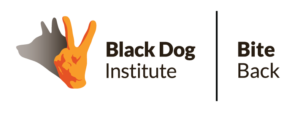
Bite Back
Six free, self-guided, positive psychology weekly challenges for young Australians aged 13 to 16 years old. The program is designed to reduce stress and improve focus, friendships and emotional wellbeing through interactive activities, quizzes, and information across nine positive psychology domains.

MyCompass
A fourteen-unit, CBT-based program to help adults better manage symptoms of anxiety, depression, and stress. The self-directed toolkit aims to promote resilience and wellbeing through interactive skill-building modules such as self-monitoring, problem solving, relaxation and tackling unhelpful thinking. Offers SMS reminders. Registration required. Recommended for use for a minimum of seven weeks.
Apps

Mello
Available to download from Apple App Store and Google Play
An app to help young people break free from repetitive negative thoughts such as worry or rumination, symptoms often contributing to anxiety and depression. The tool incorporates evidence-based strategies from CBT, ACT, and DBT. It is designed for people aged 16-25, but it is also accessible to those outside this age group.
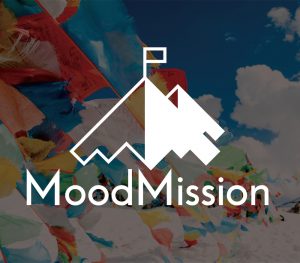
MoodMission
Available to download from Apple App Store and Google Play
An app to help people learn new strategies to cope with stress, low moods and anxiety. The CBT-based content is suitable for older adolescents, young adults, or adults. The app has a fee of $7.99 to cover ongoing running costs.
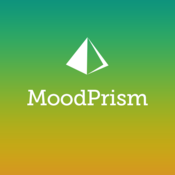
MoodPrism
Available to download from Apple App Store and Google Play
A free, evidence-based app to develop emotional awareness and improve mental wellbeing. The app helps users track their mood, providing daily interactive reports and tailored mental health links and resources to build insight.
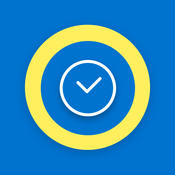
ReachOut Worry Time
https://au.reachout.com/tools-and-apps/reachout-worrytime
Available to download from Apple App Store and Google Play
A free app teaching CBT techniques to assist people with anxiety and stress. Designed to help interrupt repetitive thinking by setting aside worries and setting a time each day to deal with them, rather than carrying them around 24/7.
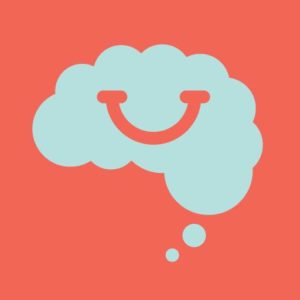
Smiling Mind
https://www.smilingmind.com.au/
Available to download on Apple App Store and Google Play
A free app and website teaching mindfulness meditation to improve mental wellbeing. There are dedicated programs for children (3-12), youth (3-18), adults, families, educators, and workplaces. The evidence-based tools support people to learn fun and interactive ways to maintain their mental health.







